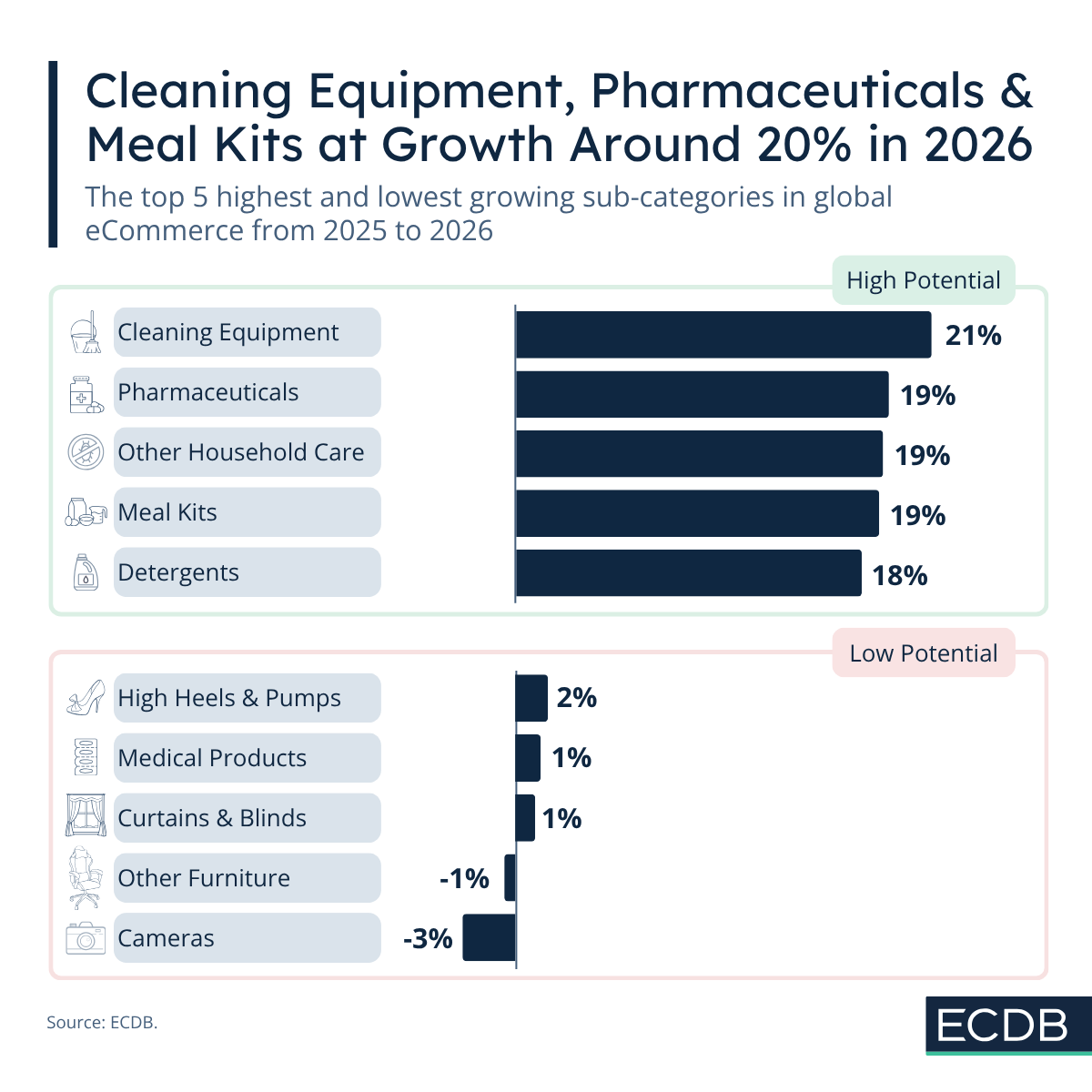This Week in M&A Issue #210
Hey Champ!
Today’s trend of the week is “football gear”. 🏈
Football fever is taking over both the field and the marketplace.
Shopify data shared with Retail Brew, shows massive spikes in sales of football-related items in October, with purchases of shoes up 106%, chin straps up 97%, training gear up 91%, and gloves up 90%. Helmets and face masks also saw strong growth, climbing 44% and 63% respectively.
This surge isn’t limited to purchases alone. Google searches for “football equipment” hit 60,000 in the U.S. in September, their highest point in 15 years!
Ecommerce sellers can kick off a profitable season by expanding their product lines to include football gear, fan apparel, or training accessories. YouTube creators, bloggers, and affiliates can get in the game by producing gear reviews, product comparisons, and “best of” lists for football accessories, attracting both fans and aspiring athletes.
Now’s the moment to tackle the football gear trend head-on!
Today we have for you:
- Amazon issues legal warning to Perplexity over agentic browsing
- Shopify launches new “In Stock” eCommerce-focused newsletter
And:
- Top 5 hottest eCommerce product categories
- Why buying an older business is a smarter move
- Google’s Pomelli creates branded marketing assets in minutes
Alright, let’s dive in.
Amazon
Amazon has issued a legal warning to AI startup Perplexity, demanding that its shopping assistant, Comet, stop operating on its platform.
Amazon claims Comet violates its terms of service by failing to disclose that it’s an AI agent rather than a human shopper. After issuing repeated warnings, Amazon escalated to a formal cease-and-desist letter, which Perplexity publicly criticized in a blog post titled “Bullying is not innovation.”
Perplexity argues that Comet acts on behalf of real users, giving it the same permissions as a human. Amazon counters that transparency is non-negotiable for third-party services, comparing the situation to food delivery or travel apps, which always identify themselves when interacting with restaurants, stores, or airlines.
Comet allows users to search for products and make purchases directly on Amazon, with credentials stored locally on user devices. Amazon says such third-party shopping agents must “operate openly” and warns that Comet undermines the shopping experience by bypassing personalized recommendations, product discovery, and optimized delivery options.
Perplexity sees Amazon’s move as a play to safeguard revenue, arguing that AI bots shop more efficiently, free from upsells and impulse purchases, behavior Amazon monetizes heavily.
While Amazon suggests that simply identifying Comet as an AI agent could resolve the issue, there’s concern that Amazon could still block such tools entirely, especially as it rolls out its own AI shopping options, including the Rufus chatbot and the “Buy For Me” feature, which completes purchases from third-party sites within Amazon. These restrictions protect Amazon’s $56 billion advertising business, which relies on controlling customer interactions and monetizing traffic through sponsored listings.
The dispute highlights growing tensions in eCommerce as AI agents gain autonomy. While many retailers experiment with AI-assisted shopping, Amazon remains an outlier, blocking third-party bots while developing proprietary alternatives.
The dispute raises an important question: should AI agents serve customer intentions efficiently, or should platforms prioritize their own monetization strategies?
ecommerce
Shopify’s “In Stock” Brings Entrepreneurial Insights to Substack’s Growing Platform
Shopify has become the largest company yet to launch a Substack newsletter, joining a wave of major brands experimenting with the platform as a new way to connect with audiences.
Shopify introduced its newsletter, In Stock, on October 20, marking its debut into the fast-growing world of brand-led storytelling through newsletters. While fashion and beauty brands have embraced Substack to share behind-the-scenes content and brand values, Shopify is the first major eCommerce platform to join the trend. With a market capitalization north of $220 billion, Shopify dwarfs other corporate publishers on the platform, including Nike, American Eagle, and The RealReal.
The company’s newsroom lead, Dayna Winter, said the move was inspired by seeing entrepreneurs and Shopify partners already active on the platform. “If we’re an entrepreneurship company, we should be there,” she explained.
In Stock aims to feel more conversational and “unbuttoned” than Shopify’s traditional communications. It features Q&As with founders, first-person essays, and a series called Decoded, which explores the real strategies behind successful Shopify merchants. Future installments will also use Shopify’s vast commerce data to highlight emerging trends through features like Viralify, a data-driven look at products gaining traction across the platform.
The newsletter will be free and published twice a week, with plans for future collaborations with independent Substack writers in the entrepreneurship space.
eCommerce
Top 5 Highest and Lowest Growing Sub-Categories in Global Ecommerce
Experienced business owners know that product popularity and demand constantly fluctuate.
ECDB recently released an analysis of worldwide product category performance to help business owners get an idea of which product categories are most likely to be profitable in 2026, and a common thread is clear. Products that make life easier, faster, and cheaper are thriving, while those that rely on physical touch, fit, or personalized advice are lagging behind.
Globally, groceries lead the pack in online growth, but the real insights come from the subcategories driving momentum. Cleaning equipment, pharmaceuticals, and meal kits are forecast to grow around 20% year-over-year, signaling where consumer behavior, and opportunity, are heading.
Everyday essentials like cleaning products and household care items are winning because they fit perfectly into eCommerce habits. Shoppers love the price transparency and bulk discounts they can’t find offline. In China, platforms like Pinduoduo and Douyin are dominating this space through group-buying models that encourage social, high-volume purchasing, an approach Western platforms could learn from.
Pharmaceuticals are another fast-moving sector, projected to grow nearly 19% in 2026 and expected to make up half of global sales by 2029. Post-pandemic regulation shifts have opened the door for more online prescription drug sales, creating a massive opportunity for platforms that can handle trust, logistics, and compliance.
Meal kits are also booming, riding the wave of convenience and health-conscious eating. Brands like HelloFresh and Hungryroot are redefining the online grocery experience by combining personalization with subscription-based models that lock in recurring revenue, something many entrepreneurs could emulate.
On the flip side, categories like high heels, medical supplies, and curtains are losing momentum. Their need for physical interaction, fit, or expert guidance makes them less suited for online sales.
It seems as though categories that save consumers time and effort, or remove friction from the buying process, are the ones set to win big in 2026.
Read All About It!
🎁 Google’s Holiday 100: top trending gifts
📈 The 12-month Amazon growth guide: double your revenue
🔥 Top trending topics for October 2025: top 100 topics in the US right now
📘 5 AI business blueprints for founders: from Shaan Puri
YouTube
Why Older Businesses Are the Safest to Buy
What’s the real value of age when it comes to buying or selling an online business?
In this week’s video, Greg breaks down why a business’s age isn’t just a number; it’s a key factor in its valuation. While sellers can’t speed up time, buyers have the unique advantage of choosing how much history they want behind the business they acquire.
Greg explores how older businesses often come with proven systems, stable cash flow, and reduced risk, while newer ones can carry higher growth potential but also higher uncertainty. With 20% of startups closing in their first year and 50% shutting down by year five, age can make the difference between a safe bet and a costly gamble.
If you’re thinking about buying or selling a business, this video will help you understand how maturity impacts both value and risk.
Google Labs Launches Pomelli, an AI Tool for SMB Marketing
Google Labs, in partnership with Google DeepMind, has launched Pomelli, a new AI tool aimed at helping small-to-medium-sized businesses create consistent, on-brand marketing campaigns with ease.
Pomelli works in three simple steps. First, it analyzes a business’s website and existing images to build a “Business DNA” profile. This profile captures the company’s tone of voice, color palette, fonts, and overall visual style. Pomelli uses this information to ensure that marketing materials remain consistent across social media, websites, and ads.
Second, once the Business DNA is established, the AI generates tailored campaign ideas. Businesses can select from these suggestions or provide their own prompts to create content aligned with specific goals. This feature is designed to save time and reduce the effort typically spent brainstorming messaging and campaign angles.
Finally, Pomelli produces editable, high-quality creative assets. Users can tweak both text and images directly within the platform and download the finalized materials, ready to publish across their channels. This process reduces reliance on external design or copywriting resources, making professional-quality marketing more accessible to smaller teams.
Launched on October 28, Pomelli is available as a public beta in the U.S., Canada, Australia, and New Zealand, in English.
Money Nomad
Looking for a side hustle?
Try Money Nomad, our sister marketplace built specifically for profitable side hustles and micro-businesses that are too small for Empire Flippers.
Check out this recent listing available on the Money Nomad Marketplace:
Listing M20130 – $70,000.00
Amazon KDP, eCommerce | Education
This business, launched over a decade ago and operating primarily through Amazon KDP, offers a well-established portfolio of educational workbooks designed to help students prepare for standardized testing in math and reading. All titles are original, fully owned by the seller, and published under a respected brand with a long-standing reputation among teachers, parents, and schools. This listing is ideal for a buyer seeking a passive, home-based income stream with strong fundamentals and untapped growth potential in both digital marketing and product expansion. Learn More
Subscribe to the This Week in M&A Newsletter
to Get Content like This in Your Inbox Every Friday







